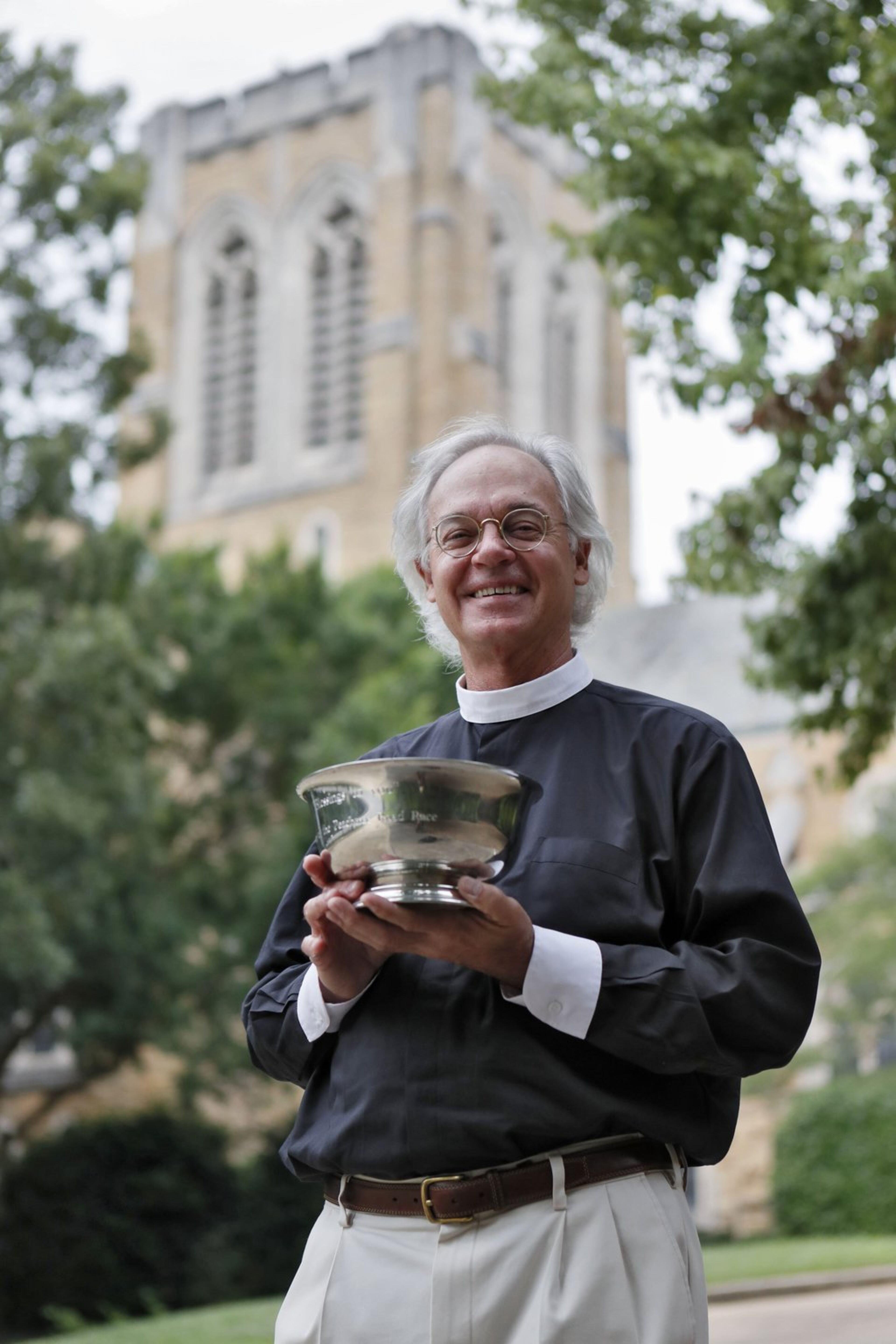Why AJC Peachtree Road Race is blessed in more ways than one

The Rev. Sam Candler will give an invocation for the estimated 60,000 people who’ll run past his church during Thursday’s AJC Peachtree Road Race, The Temple’s Rabbi Loren Lapidus will be running, and members of Peachtree Road United Methodist Church will hand out water to the runners.
Each year, thousands of supporters line the race route, and some of the most enthusiastic are members of the 10 houses of worship along Peachtree.
Community leaders like Sam Massell, who fired the starter’s pistol at the first race in 1970, say the world’s largest 10K race wouldn’t be the event it is today without the blessing of these faith-based organizations.
> MORE: Video story about The Blessing Priest, the Rev. Sam Candler
“It played a key role in its success because short of its blessing, so to speak, (the growth of the race) wouldn’t have occurred,” said Massell, longtime Buckhead Coalition president who was Atlanta’s mayor from 1970 to 1974.

For the Rev. Bill Britt, senior minister of Peachtree Road United Methodist Church, the race is a day for his congregation to show some Christian and Southern love. Several hundred church members are expected to cheer on the runners. The church has a flag on the grounds welcoming the runners. Britt, as he’s done in past years, will give runners high-fives.
“It’s an opportunity for us to offer some hospitality,” he said.
Such spirited support for the runners wasn’t always so for some houses of worship along the race route — particularly when the race was held on a Sunday.
> MORE: Remembering the AJC Peachtree Road Race founder 50 years later
In 1982, the churches threatened to file suit to have the race moved to July 5. The race would interfere with worshippers trying to come to Sunday services. The Rev. Andrew Young, Atlanta’s mayor at the time, mediated. A compromise was reached and the race began at 7:30 a.m. instead of 8 a.m.
In 1993, another year when the race was on a Sunday, some churches canceled or combined services. “We’re going to try to make this lemon into lemonade,” Mike Cordle, senior minister at St. Mark United Methodist Church, told the AJC at the time.

Candler, dean of the Cathedral of St. Philip, recalled meeting with then-race director Julia Emmons before the 1999 race, when July 4 was on a Sunday. Several churches were again worried. The meeting could have been tense.
Candler, in his first year at the church, had a thought. Could the church install a “Holy Water fountain” on its grounds and hand out water to the runners? Emmons was excited and relieved.
“We’re not going to curse,” Candler said of the cathedral’s mindset about the race’s impact on worship services. “We’re going to bless.”
A few years later, houses of worship along the route hosted parties and pancake breakfasts for runners.
Massell said if the resistance from Buckhead’s faith community resulted in changes, such as revising the race route, “there would have been two races: the foot race and the race to run out of town the people who allowed the race to be rerouted.”
Lapidus was unaware of the size and scope of the race when she joined The Temple in 2008. She learned fast, awakened by the sounds of helicopters over her Buckhead apartment that Independence Day and looking down at the masses of people in running shorts.
“Someone really undersold it to us,” she deadpanned.
Lapidus helped recruit several clergy at The Temple to run or walk the race the following year. She’s run nearly every year since.
“Taking care of one’s body and being part of the community are important things to do,” said Lapidus, who will be doing the invocation with Candler.

Candler will be in front of his church after the invocation. The church does a blessing for the last wave of runners and for the sanitation workers who clean up.
It’s now a church tradition.

